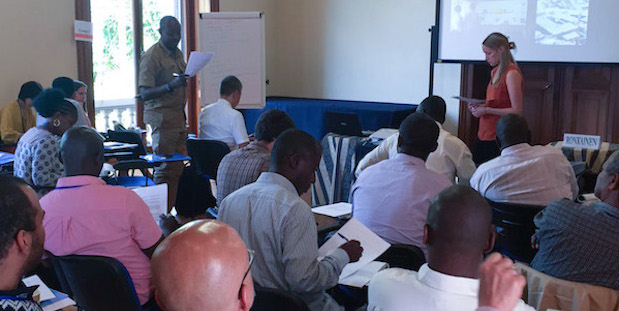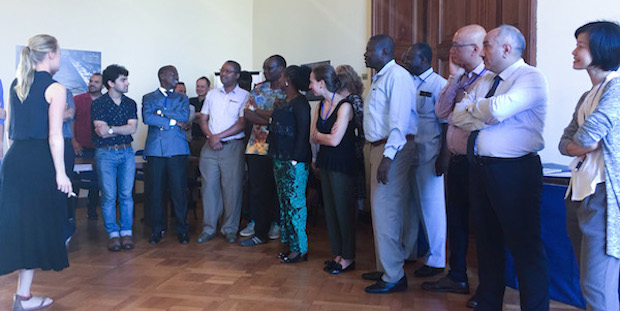In line with our commitment to facilitate cross-contextual learning, JIPS was excited to take part for the third year in a row in the annual Course on the law of internal displacement to facilitate sessions on data collection and durable solutions.
Organised by the International Institute for Humanitarian Law (IIHL) in cooperation with the Special Rapporteur on the human rights of Internally Displaced Persons and UNHCR, the course is designed primarily for government officials and NGO personnel working on displacement-related issues. With participation from a wide range of countries, the intensive course provided a positive learning environment and a useful forum for exchange of experience and passionate discussions on best practice.


Broadly speaking, the course aims to increase governments’ and NGOs staff’s knowledge on the international norms that underpin the protection of IDPs and to understand how to apply best practice.
Through expert lectures, practical exercises, simulations and experience sharing, the training aims to enable participants to identify IDPs’ rights and corresponding responsibilities of governments and national and international actors; identify law and policy gaps that prevent IDP responses from being implemented effectively; and consequently develop national implementation and monitoring mechanisms, tailored to the different country situations. With special sessions on key thematic issues such as IDP participation, sexual and gender-based violence, transitional justice and durable solutions, the training also facilitated further learning outcomes on these prioritised topics.
This year, a special edition of the course was organised to celebrate the 20th anniversary of the Guiding Principles on Internal Displacement and link up with the GP20 Plan of Action. It brought together participants from a wide range of displacement-affected countries, including Azerbaijan, Congo, Ethiopia, Honduras, Kenya, Mexico, Myanmar, Nigeria, Philippines, South Sudan, Sudan and Zambia.
If one thing was clear from the JIPS-facilitated session on data, it is that passions run high on this topic. Participants were fully engaged in this session due to a clear understanding of the centrality of quality data for all other action and a widespread recognition of the deep and difficult challenges they face in producing useful data on IDPs.
The session focused on identifying the type of data that is useful to improve protection of IDPs, taking into consideration the varying contexts in which participants were working. Discussions led to a clear conclusion that a standardised practice and good quality agreed-upon data is needed for well-informed and more effective policies and programmes.
Global efforts going in this direction were therefore brought to the attention of participants. We were able to introduce the work of the international Expert Group on Refugee and IDP Statistics (EGRIS), which is working to develop global standards and recommendations on IDP statisticsthrough a country-led and experience-informed process. Through enhancing comparability of data from different sources and developing recommendations that will better link IDP data to international normative frameworks and national statistical systems, the EGRIS an important opportunity to increase the visibility of IDPs in SDG reporting and national development planning.


The session on durable solutions, which JIPS was also invited to facilitate based on our work in recent years in this area, also enabled a concrete exchange of experience between peers. In particular, the session highlighted a number of key principles that are crucial for supporting durable solutions in reality, including:
Through an interactive exercise, the session paved the way to a revealing discussion on how different participants understand durable solutions, depending on their diverse perspectives and experiences. Through this exchange, key principles were identified and tools and guidance were shared with participants. This included the Durable Solutions Indicator Library and Analysis Guide recently developed under the leadership of the Special Rapporteur, which were warmly welcomed by participants.